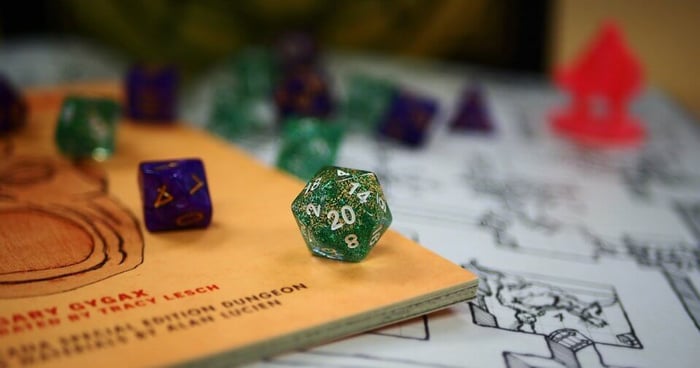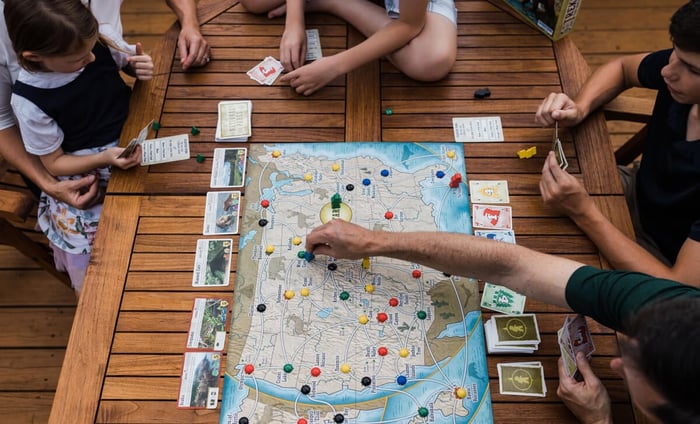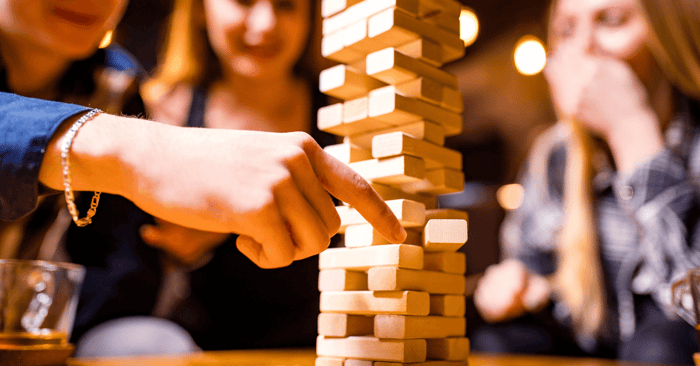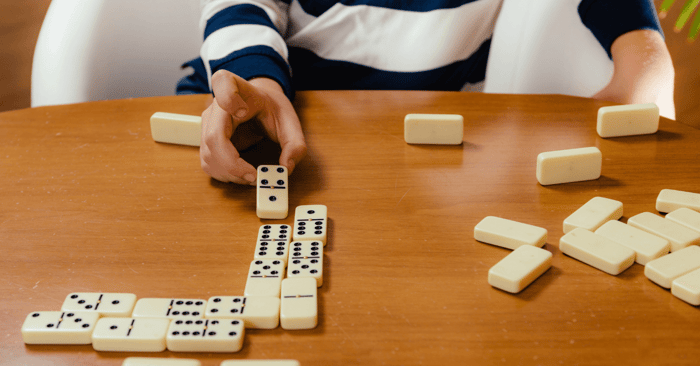When the hit Netflix show Stranger Things premiered in 2016, many fans were immediately transported to their own childhood (minus the real-life Demogorgon, of course). As the camera panned over a group of four pre-teen boys engrossed in a game of Dungeons and Dragons, these viewers relived their own early D&D games. The excitement, the imagination, the camaraderie of the campaigns—all these things made the fantasy role-playing game popular in the 1980s. Those early players are grown up now, and have introduced the game to new generations. And these days, we're realizing there are a lot of surprising, real-life benefits to playing Dungeons and Dragons (D&D).
D&D makes you smarter.
In 2018, KQED told the story of a group of ninth grade students who far outscored the others at their school on state standardized tests. The one thing these kids had in common? They were all Dungeons and Dragons players. You might be tempted to think, "Well, of course. Smart nerdy kids are the ones who play D&D." Except that wasn't really the case. Many of these same kids had a history of struggling with academics.
Professor David Simkins of the Rochester Institute of Technology has an explanation. His research shows that one of the benefits of playing Dungeons and Dragons is that it makes kids more receptive to new learning opportunities. "Participation in narrative role play can open up interests in topics such as mathematics, science, history, culture, ethics, critical reading, and media production," Simkins told KQED.
D&D has an obvious connection to creative writing, history, and geography. But STEM skills are necessary to succeed in the game, too. After all, a lot of the game hinges on rolls of the polyhedral dice. Understanding the probabilities involved can improve your chances of success. Not to mention all the calculations needed to figure out things like hit points and damage when battling those dragons. Dungeons and Dragons players may or may not start out smarter than their peers, but the more they play, the more real-world skills they develop.
D&D builds cooperative, problem-solving skills.
From its very start, one of the benefits of playing Dungeons and Dragons was that it brought groups of people together. The stereotypical "nerds" or "geeks" that made up its base were the kinds of kids who often had difficulty making friends. D&D opened up a whole new way for them to find and connect with each other.
Writer Ethan Gilsdorf shared his own D&D experiences in a piece for TED. "When I first started to play D&D, I was dealing with a lot of my own monsters," he says. "I played D&D obsessively, every Friday night from 8th through 12th grade. Then, I stopped for 25 years. When I returned to D&D in my forties, I realized something. Role-playing games had shaped me. They provided a powerful coping mechanism. They had given me powerful tools. They saved me."
Gilsdorf goes on to note that being part of a team is an important aspect of Dungeons and Dragons, and the skills you learn translate to working cooperatively at your job or as a family. Camaraderie is key. "Each person in the circle contributes," explains Gilsdorf. "D&D’s lessons are: Celebrate your differences; it’s OK to rely on each other; I’ve got your back."
This spirit of cooperation extends to problem-solving, too. As most of us know, in real life, problems pop up regularly—and they often have more than one answer. This is another one of the benefits of playing Dungeons and Dragons: learning to evaluate and come up with creative solutions to challenges.
"Role-playing games teach innovation," Gilsdorf says. "They train the mind to solve problems, make unexpected connections, and discover alternative paths through the darkness."
D&D is good for mental health.
Games are fun, and it's no surprise that having a good time helps your mental health. But the benefits of playing Dungeons and Dragons go deeper than just fun. D&D provides an opportunity for players to develop social-emotional skills, build confidence, and learn to express themselves.
As kids learn and grow, they need safe spaces to try new things. They need to know it's okay that you won't always succeed the first time—or even at all. As an article on ScreenRant points out, "Oftentimes, children are afraid of failing in certain social situations, so D&D creates a role-playing experience where it's okay to fail, since there's almost no perceived real-life consequences." Players gain confidence as they play, both in the game and in real life.
D&D has a lot of therapeutic benefits, too. Therapists are starting to use D&D in therapy sessions, finding that it helps to combat both anxiety and depression. A recent Forbes piece on the benefits of playing Dungeons and Dragons recognizes that D&D's main skills (role playing, character development, and conflict resolution) are all important tenets of cognitive behavioral therapy, a common treatment for a wide variety of mental health problems.
Often, D&D players become a close-knit group, and their commitment to each other is important. "At the best of times, Dungeons & Dragons can be a cathartic outlet for many people," ScreenRant notes. "It's a way to express themselves creatively while having fun. In more difficult times, it might even be the one commitment that keeps a person going."
Whatever your reasons for playing Dungeons and Dragons, the benefits are clear. D&D is far more than just a game for nerds and geeks. It's an immersive experience that encourages kids and adults alike to express themselves, take risks, and try new things. It builds a community of supportive friends, providing a boost to mental health along the way. It improves all sorts of learning skills, including math, as well as social-emotional skills. Dungeons and Dragons provides many with a way to fight their real-life dragons and emerge from the dungeon as smarter, happier, more well-rounded people.





